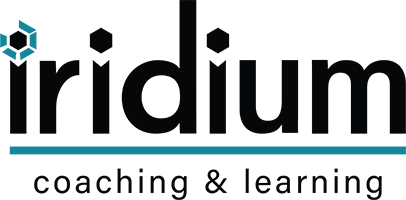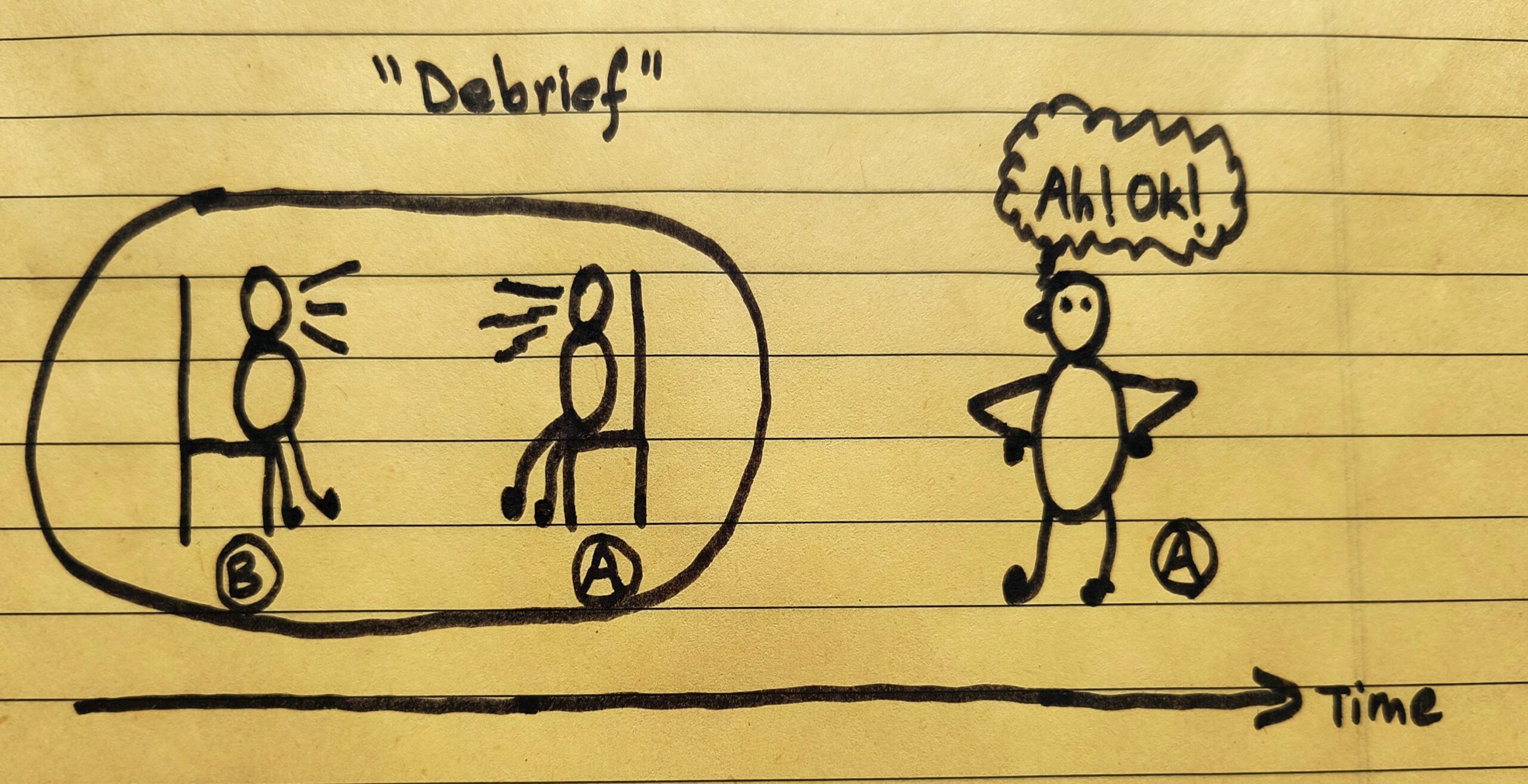The practice of debrief!
I have stopped counting how many times a post from Sunitha Krishnamurthi has triggered a different idea that translated into a post here. Sunitha’s original post is here, and it aptly talks about need for feedback and how one goes about acquiring meaningful feedback, but also how one puts it to use towards a constant evolution and improvement in service levels.
This got me pondering about what one does when there is no feedback or limited feedback available, especially in the world of coaching and facilitation, where there is no immediate observer who can give us meaningful feedback about how we performed. Participant feedback is in the moment or post-event, but as professionals we often seek more inputs that can help hone our effectiveness and quality of delivery.
There is a simple and effective self-feedback method that I teach in my courses. I called it “the debrief“. I personally use it in my coaching conversations, in my workshops and in smaller sessions in longer courses, or any such event.
It proves to be useful when feedback may not be available or unreliable. But over a period of time, it has become a habit. Here is how it works:
✅Let the event happen and you remain focused on doing that bit well.
✅Once the event is over, allow yourself to completely step out of the frame of mind of being in that event or conducting it.
✅In a dissociated state, “look back” at the event as if it is a video clip.
✅Answer the following questions to develop your own feedback:
- What went well? OR What did I do well?
- What could have been better?
- What am I learning that I am carrying to my next event?
✅And then you move on to the next event.
Done consistently over a period of time, this practice increases self-awareness, sharpens our instinct and reveals actionable reflection points, that accumulate into a sizeable improvement in performance. The beauty of this method is its simplicity and hence applicability in other situations as well.
Imagine doing this:
- after a conversation giving difficult feedback to someone
- after you have given a speech or a townhall address
- after a routine team meeting
- after a parent-teacher meeting
- after setting expectations with a colleague
- after an important conversation with your kids or spouse
- after a salary negotiation
- after a pitching a new idea
No matter where you use it, this method helps increase our ability to self-reflect. Imagine asking yourself these questions on a Friday after work, and it will help you improve as a working professional!
You could also use this as a simple structure to ask for feedback. Receiving any kind of feedback that helps, is difficult. But using this simple process, makes it easier for the other person to structure their thoughts while giving us feedback!

